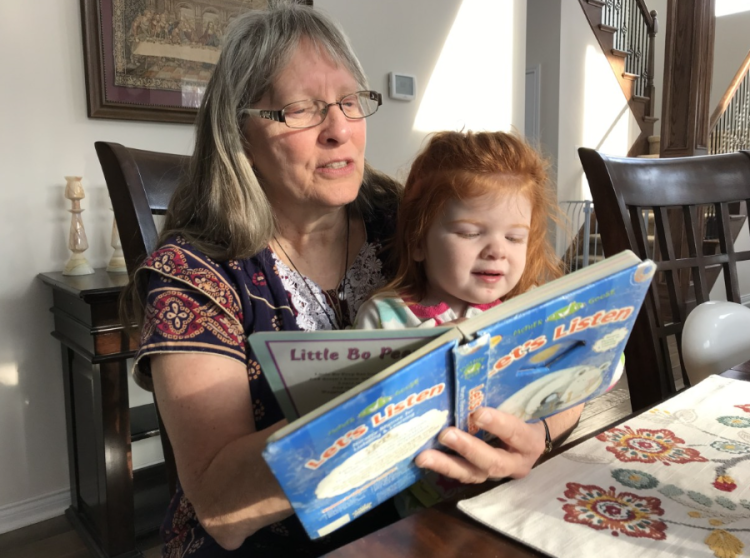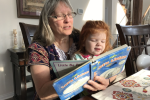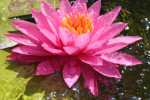I want to tell you about Gloria and Edgar. Gloria was the unsightliest girl in the class. Edgar lived down the street and was what we then called “deaf and dumb.”
But first I want to tell you about philosophy.
Philosophers are people who ponder the great questions of life, spin one or more of all the possible answers to them, and then leave the rest of us to wander up and down the highways and byways of our worlds trying to figure out which one of those answers, for us, was the best of them all.
What is truth? Socrates asked. What is the answer to pain? the Stoics asked. What is the best possible human organization? Rousseau asked. What does it mean to be a woman? Simone de Beauvoir asked. How do we know we really exist? Descartes asked.
As a young college student, I remember being deeply impressed by the entire exercise. What kind of person did it take to be a philosopher? How was it possible for someone as pedestrian as I to understand such things?
Then, I got older and discovered that, as a matter of fact, we all ask those questions. In fact, we spend a good portion of life trying to figure life out. We don’t always know we’re doing it, of course, but we do it just the same. More than that, we often do it when we’re very young and it shapes the rest of our lives.
Which brings me back to Gloria and Edgar. Gloria was a very plain girl in a world of social stars.
The “popular girls” in the class decided who was “in” and who was “out” of social acceptance. The rest of the girls simply came to school—but they never got to the parties. They didn’t sit at the lunch table where the in-crowd sat. And Gloria was definitely not “in.”
She took the butt of the jokes, the snide remarks, the snubs that came as invitations flew around her andshe never got one. But Gloria didn’t wilt under the exclusions. Instead she threw her own parties, planned her own social events—and invited everyone.
Edgar spent his life being made fun of by the other kids on the block for his stumbling walk and the strange sounds he made. But Edgar smiled at them anyway. He just laughed and spent his days helping old people on the block carry their groceries or empty their garbage cans every day of his life.
I don’t remember most of the other girls in the class. I never did know the rest of the people on the block. But I’ve never been able to forget Gloria and Edgar.
That’s how I know that the great philosopher René Descartes was wrong when he said as proof that he was alive, “I think, therefore I am.” No, thinking does not make us fully alive. Instead, on this question, Kathleen Raine, a philosopher like the rest of us, is the one who has really found the answer. She writes, “Amo ergo sum: I love, therefore I am!”
Love is the great definer of life. Those who love, live. Those who live and never learn to love, are alreadydead of soul. Love something; love anything and everything in order to release the rest of yourself.
No doubt about it: It is love that makes us human. I doubt that Kathleen Raine knows Gloria and Edgar but if she’s ever asked to explain how she arrived at such a profound philosophical conclusion these two life-loving people are surely it.
FRIDAY, AUGUST 1: Learning to love is the challenge of a lifetime because it requires us to think about something other than ourselves.
SATURDAY, AUGUST 2: Learning to be lovable is an even greater challenge because it requires that we make ourselves a joy to others.
SUNDAY, AUGUST 3: Learning to do both makes us experts at life. “The greatest thing you’ll ever learn,” Eden Ahbez writes, “is just to love and be loved in return.”
MONDAY, AUGUST 4: Neither love nor lovableness comes without concentration and commitment. The problem is that there are very seductive but superficial imitations of both of them. But in the end, the differences between them are clear: “It is love,” Augustine of Hippo tells us, “that asks, that seeks, that knocks, that finds, and that is faithful to what it finds.”
TUESDAY, AUGUST 5: Love requires us to make something other than ourselves the center of our lives. Clearly it is a learned art.
WEDNESDAY, AUGUST 6: Without love, we isolate ourselves from life. However much we race from party to party, something is clearly missing. “The opposite of loneliness,” Richard Bach wrote, “is not togetherness, it’s intimacy.”
THURSDAY, AUGUST 7: It’s easy to find a crowd to run around with. It’s one of the miracles of life, though, to find someone with whom we can share our souls. “Where there is the greatest love,” Willa Cather wrote, “there are always miracles.”
FRIDAY, AUGUST 8: To love someone is to double all our joys and divide all our disappointments. To be loved is to increase our courage and decrease our fears.
SATURDAY, AUGUST 9: To love another for our own sake, rather than theirs, is to go through life a perpetual adolescent.
SUNDAY, AUGUST 10: If sex were essential to love, then sickness, age, accident and disability would be the end of it. But the truth is that sex can't keep a marriage together and it can't end it either. Not a real one. Love that asks for nothing in return is the purest, most dramatic love of all.
MONDAY, AUGUST 11: Real love grows. It is never at its inception what it is later as it becomes more spiritual, less physical, more one and less two, more supportive than supported.
TUESDAY, AUGUST 12: When souls really touch, it is forever. Then space and time disappear, and all that remains is the consciousness that we are not alone in life.
WEDNESDAY, AUGUST 13: Love we can’t see isn’t love. Love shops and cooks and laughs and talks and tells and plans things that the other person really wants. It is the gift I give to someone who either never expects it or has every right to expect it but never requires it.
THURSDAY, AUGUST 14: Being able to reach out with warmth and care to those we do not know is every bit as important as connecting with those we do know. Otherwise the love we claim to have is only self-centered rather than really human.
FRIDAY, AUGUST 15: Love is the value that trumps all others—truth, equality, even justice. “At the evening of life,” John of the Cross writes, “we shall be judged on our love.” And the reason is obvious.
SATURDAY, AUGUST 16: For the one who loves, dishonesty, oppression and injustice are impossible.
SUNDAY, AUGUST 17: Once we love the people we serve, the work we do, the life we have, the ones with whom we go through life, we have it all. There is no more. “The most important thing in life,” Morrie Schwartz writes, “is to learn how to give out love—and to let it come in.”
MONDAY, AUGUST 18: Love is the cocoon that saves us from the hostility of those whose negativity turns every moment into a competition or a put-down.
TUESDAY, AUGUST 19: To go into a group that does not want you, just take with you one person who loves you and nothing can possibly hurt you there.
WEDNESDAY, AUGUST 20: Love is not about finding someone who is perfect; it is about finding someone who understands you perfectly and loves you regardless. Jacques Maritain wrote, “We don’t love qualities, we love persons; sometimes by reason of their defects as well as of their qualities.”
THURSDAY, AUGUST 21: Truth is time-bound, winning is fleeting, competition fails us, accumulations go to dust. Only love remains. Novalis says of it: “Love works magic/ It is the final purpose/ of the world story,/ The Amen of the universe.”
FRIDAY, AUGUST 22: If you love someone, set them free. Possessiveness drives the possessed one away. “Anxiety is love’s greatest killer,” Anaïs Nin writes, “It makes one feel as you might when a drowning man holds onto you. You want to save him, but you know he will strangle you with his panic.”
SATURDAY, AUGUST 23: The real love of two, if we hold it in healthy hands, makes us fearless, makes us even more loving, expands our hearts rather than contracts them and so enables us to take in the entire universe. Petrarch tells us, “Love is the crowning grace of humanity, the holiest right of the soul…the redeeming principle that chiefly reconciles the heart to life and is prophetic of eternal good.”
SUNDAY, AUGUST 24: Love is all we know of God. It is all the proof we need of God. It is the sight of God in our own lives. “The story of love is not important,” Helen Hayes says, “what is important is that one is capable of love. It is perhaps the only glimpse we are permitted of eternity.”
MONDAY, AUGUST 25: Love is not a mold that makes two people the same person. Love is the dream that enables both of us to be our own best person—together.
TUESDAY, AUGUST 26: Love knows no one can fill up in us what we lack in ourselves.
WEDNESDAY, AUGUST 27: Too many times we insist on loving people the way we want to love them instead of the way they need to be loved.
THURSDAY, AUGUST 28: Love never counts—either what it gets or what it gives. “Love,” Eleanor Farjeon writes, “has no uttermost, as the stars have no number and the sea no rest.”
FRIDAY, AUGUST 29: When we reach for the stars and fail, it is the presence of a loving other who helps us stay the road. In this kind of holy wisdom, we learn that there is more love around us than we ever knew we had.
SATURDAY, AUGUST 30: Like the ropes of mountain climbers, the love of our community holds us fast when everything in life around us—our health, our work, our very faith, our spiritual life, and the depression that comes with change and loneliness—threatens to leave us unmoored.
SUNDAY, AUGUST 31: The challenge of spiritual love is to go through each phase of our lives and come out even more committed, more holy and more mature than we were when we began.
LET’S SHARE OUR THOUGHTS
The following discussion questions, Scripture echo, journal prompts, and prayer are meant to help you reflect more deeply on The Monastic Way. Choose at least two suggestions and respond to them. You may do it as a personal practice or gather a group interested in sharing the spiritual journey.
DISCUSSION QUESTIONS
1. Sister Joan writes: “The real love of two, if we hold it in healthy hands, makes us fearless, makes us even more loving, expands our hearts rather than contracts them and so enables us to take in the entire universe.” Were there loves in your life that stretched and broadened your love? That contracted it? Do you recognize the fearlessness, the expansiveness of love that Sister Joan describes?
2. Which daily quote in The Monastic Way is most meaningful to you? Why? Do you agree with it? Disagree? Did it inspire you? Challenge you? Raise questions for you?
3. After reading The Monastic Way, write one question that you would like to ask the author about this month’s topic.
4. Joan Chittister uses other literature to reinforce and expand her writing. Find another quote, poem, story, song, art piece, novel that echoes the theme of this month’s Monastic Way.
5. Sister Joan teaches, “When we reach for the stars and fail, it is the presence of a loving other who helps us stay the road. In this kind of holy wisdom, we learn that there is more love around us than we ever knew we had.” Reflect on times you have been the recipient of such love. The giver of such love. Do you have any insights from those experiences? Any learnings? Are there ways they influence your life in the present?
JOURNAL PROMPTS
Prompt 1: Here are a few statements from this month’s Monastic Way. Choose one that is most helpful to you and journal with it.
• For the one who loves, dishonesty, oppression and injustice are impossible.
• It’s easy to find a crowd to run around with. It’s one of the miracles of life, though, to find someone with whom we can share our souls.
• Love we can’t see isn’t love. Love shops and cooks and laughs and talks and tells and plans things that the other person really wants.
Prompt 2: Spend a few minutes with this photograph and journal about its relationship to this month’s Monastic Way. You can do that with prose or a poem or a song or....
SCRIPTURE ECHO
Love is patient, love is kind.
It does not envy, it does not boast,
it is not proud.
It does not dishonor others,
it is not self-seeking,
it is not easily angered,
it keeps no record of wrongs.
Love does not delight in evil
but rejoices with the truth.
It always protects, always trusts,
always hopes, always perseveres.
Love never fails.
- 1 CORINTHIANS 13:4-8
PRAYER
Just as a mother with her own life
protects her child,
her only child, from harm,
so within yourself let grow
a boundless love for all creatures.
Let your love flow outward through the universe.
To its height, its depth, its broad extent,
a limitless love, without hatred or enmity.
Then as you stand or walk,
sit or lie down, as long as you are awake,
strive for this with a one-pointed mind;
your life will bring heaven to earth.
Hindu Sutta Nipata (Discourse on Good Will)

 Artwork: by Anne McCarthy
Artwork: by Anne McCarthy




